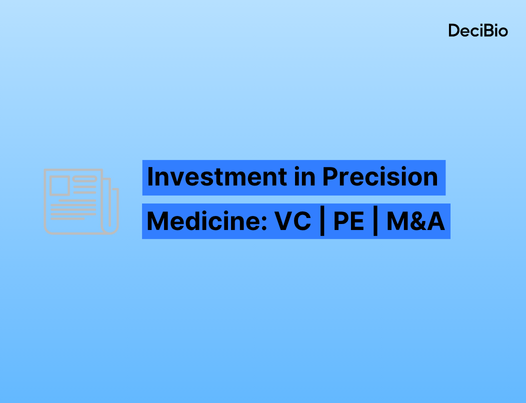Fluidigm developing cellular sample prep platform for single-cell gene expression, NGS studies---Fluidigm Developing Cellular Sample Prep Platform for Single-Cell Gene Expression, NGS StudiesMay 17, 2012By Ben ButkusReprint from an article published by GenomeWeb:http://www.genomeweb.com/pcrsample-prep/fluidigm-developing-cellular-sample-prep-platform-single-cell-gene-expression-ngThis article has been updated from a previous version to include market research information about Fluidigm from DeciBio.Fluidigm disclosed last week that it is developing an automated sample prep system for single-cell gene expression studies and, eventually, single-cell targeted and whole-transcriptome sequencing research.The South San Francisco, Calif.-based firm also reported that its first-quarter revenues increased 26 percent on strong growth for both its instruments and consumables.The new platform, called the C1 single-cell auto-prep system, will enhance the company's burgeoning single-cell genomics business by helping users of its BioMark and BioMark HD platforms reduce reagent cost and sample preparation as much as 50-fold, Fluidigm CEO Gajus Worthington said.In addition, Fluidigm expects that the C1 may help reduce the cost of conducting single-cell sequencing studies on next-generation sequencing platforms by between 10- and 100-fold, Worthington said.Fluidigm unveiled the C1 to potential users during the first quarter of this year, and plans to place beta systems with early-access customers soon, Worthington said. He did not provide a firm commercialization timeline for the platform, but noted that Fluidigm will provide an update on C1's launch "later this summer" after assessing feedback from beta testers.Worthington discussed the new platform and the progress of other company initiatives during a conference call last week recapping Fluidigm's Q1 2012 financial results.During the call, Worthington noted Fluidigm's recent success tapping into the developing market for single-cell genomics with its first-generation BioMark system and more recently, with the launch of its higher throughput BioMark HD platform. Using the company's integrated fluidic chip technology, the BioMark HD is capable of screening up to 96 cells across 96 assays in one run, producing nearly 10,000 data points in just a few hours.According to Worthington, about two-thirds of the BioMark and BioMark HD systems that Fluidigm sold in the first quarter were designated for single-cell research, making it "the second straight quarter in a row where single-cell work dominated to this extent," he said."The BioMark HD has a bright future, but there are still major bottlenecks in single-cell genomics that must be addressed, or the market will never get big," Worthington said. "Specifically, the handling of individual cells is commonly done manually, and only a fraction of labs will ever be willing to suffer through the tedious and error-prone manual manipulation of cells. In addition, there are no affordable, tractable workflows for conducting single-cell whole transcriptome or targeted genome sequencing."Worthington then noted that Fluidigm "will [soon] be addressing both bottlenecks" with the introduction of the C1, which he said would be "totally unique in its capability in single-cell genomics … and will create a new category."He explained that the C1 will take cells from suspension, and, using Fluidigm's microfluidics technology, will automatically separate the cells into individual chambers where each cell can be "separately dosed and imaged." Then, the system will automatically process each cell in parallel through multiple steps to produce nucleic acid samples that can be analyzed directly on the BioMark or BioMark HD."By automating the handling and preparation, we'll make single-cell analysis accessible to most everyone," Worthington said. "Through the inherent miniaturization of microfluidics, we will reduce the reagent cost and preparation by as much as a factor of 50."Ultimately, he added, the C1 will be able to handle and prep cells not only for the BioMark, but also for NGS machines "at a cost approximately one-tenth to one-hundredth [of] the current cost to amplify single cells for RNA and DNA sequencing."The new platform may also dovetail with Fluidigm's existing partnership with Becton Dickinson, under which the companies are co-hosting a series of public seminars on isolating and analyzing single cells using a combination of BD's fluorescence-activated cell sorters and Fluidigm's BioMark systems.In response to an analyst's query regarding a tie-in with BD, Worthington noted that there was "certainly potential," and that if the companies were to develop a "co-marketing relationship or other kind of promotion around the C1 as we're getting ready for launch, we'll certainly make a big deal about that. It could be a natural extension of the work we've been doing and continue to do with BD already."A Singular OpportunityWorthington also attempted for the first time to quantify for investors Fluidigm's single-cell genomics market opportunity, which the company has until now only qualitatively discussed."Given all the activity we are seeing in single-cell genomics, I have received numerous requests from shareholders to help them understand and quantify the size of the single-cell genomics opportunity," Worthington said, adding that it has been difficult thus far to quantify the market due to its emerging nature.One way to do so, however, is to use a proxy technology. "A single analysis system currently in research that commands a premium [average selling price] in the low six-digit range is ideal, and there is one that jumps out right away: fluorescence-activated cell sorting, or FACS," Worthington said. "FACS is a single-cell measurement, but instead of making genomic measurements of DNA and RNA, it looks at cell-surface proteins. That is, in fact, linked to RNA measurements, as RNA levels predict protein production."Worthington noted that FACS machines, like the BioMark, BioMark HD, and C1, are high-capital-expenditure items, costing around $200,000 on the low end and around $500,000 on average. "And the measurements that these systems make are valuable enough that there are over 3,000 in use for research today," Worthington said."Another way to get at the opportunity is from the genomics side itself," Worthington added. "FACS users, it turns out, are often not genomics customers at all. There are at least 3,000 next-gen DNA sequencing machines in use around the world today. Based purely on customer interactions, we estimate half of the users out there are interested in doing single-cell targeted sequencing or whole-transcriptome profiling."Taking these factors into consideration, Worthington said, Fluidigm estimates that there is a potential total install base of between 1,500 and 3,000 for its platforms designated for single-cell genomics studies.In an e-mail to PCR Insider, Stephane Budel, a partner at market research and consulting firm DeciBio, said that the company has recently interviewed BioMark customers that are conducting single-cell analysis and are "excited" about the C1.In a report to be published next week, DeciBio estimates that the number of BioMark systems used for single-cell analysis might go up from about 80 today to between 250 and 300 by 2015.The majority of these customers are expected to use a C1 system for their experiments, Budel said, adding that ultimately, many customers purchasing the BioMark may also purchase a C1."As a result, we estimate the C1 franchise (instruments and reagents) may generate [approximately] $15 million to $20 million in revenues for Fluidigm in 2015," Budel said. "Reagent pull-through for the C1 is expected to be between what is seen for the Access Array ($10,000 to $15,000 per system per year) and BioMark (about $40,000 per system per year)," Budel said.
Q1 Results
For the first quarter ended March 31, Fluidigm reported total revenues of $10.9 million, a 26 percent increase year-over-year. Instrument sales climbed 18 percent to $5.9 million from $5 million, and consumables revenues jumped 40 percent to $4.9 million from $3.5 million. License, collaboration, and grant revenues were $189,000 versus $285,000 for the first quarter of 2011.Worthington said that Q1 was Fluidigm's sixth consecutive quarter of double-digit instrument sales growth; and that within consumables, chips for gene expression and NGS sample prep hit all-time highs — "especially noteworthy because Q1 is typically the most challenging quarter of the year, and always down sequentially," Worthington noted.While single-cell genomics was the most significant growth driver for Fluidigm in Q1, other product lines also contributed. For example, Q1 marked the company's third consecutive quarter of growth in production genotyping applications based on human genetics, which is embedded in the company's consumables revenue.Worthington also noted that Fluidigm has already seen an uptick in activity in areas such as prenatal health, now that restrictions related to a recently terminated agreement in that space with Novartis Vaccines and Diagnostics have been lifted (PCR Insider, 5/10/2012).Finally, Worthington said that its Access Array product sales continue to grow, and that the company experienced a "substantial uptick" in the number of Access Array instruments sold to labs that will use it with multiple NGS platforms."A good example of this is Ambry Genetics, which recently acquired both the Access Array and BioMark HD …, and [which uses] multiple large and desktop sequencers from multiple vendors," Worthington said."We expect this product line to continue to grow, but it won't be as fast as last year, due primarily to competition now that both Life Tech and Illumina make products that are competitive with the Access Array," he said. "It's a clear indication that we were right about the market, but it means that we will be battling for every sale. In the past, we rarely had to prove our superiority over other platforms, but for a while at least, we'll be doing more head-to-head demonstrations to show our advantages over relatively new offerings from other vendors.Fluidigm's net loss for the quarter was $6.7 million, or $.33 per share, compared to a net loss of $7.3 million, or $1.60 per share, for the first quarter of 2011.The company increased its R&D spending 34 percent to $4.3 million from $3.2 million, in large part due to higher product-development expenses for the C1 platform.Fluidigm finished the quarter with $8.5 million in cash and cash equivalents and $30.4 million in short-term investments.The firm expects full-year product revenues to grow between 25 percent and 30 percent over 2011 product revenues of $40.6 million. It expects 2012 grant revenue to be around $600,000.

Authors: Stephane Budel, Partner at DeciBio, LLCConnect with Stephane Budel on Google+https://plus.google.com/+StephaneBudel



.png)



